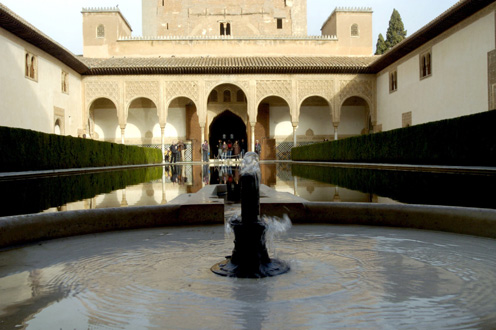For this reason, the Ministry of Education, Culture and Sport has set up a website to highlight the value of the Spanish sites already included on the UNESCO List of World Heritage Sites.
With a total of 44 sites on the list, Spain is the country with the second-highest number of UNESCO World Heritage Sites considered to be exceptional, universal and unique. In 2012, Spain added another site to this UNESCO list as part of a joint candidature with Slovenia: the mercury mines of Almaden and Idrija.
There is a total of 962 World Heritage Sites in 157 countries around the world.
Commemorative activities in Spain
Spain has undertaken numerous activities over the course of 2012 to commemorate the 40th Anniversary of the Paris Convention and was recognised as the country to present the second-highest number of such activities. The more than 30 projects carried out this year included national and international meetings and forums, round table discussions, videos, educational resources, etc.
The events to commemorate International World Heritage Day include a meeting of representatives and managers from all the World Heritage Sites in Spain. This meeting will take place in the Alcázar in Segovia and has been organised by the Spanish World Heritage Cities association.
Commitment from the competent administration services
The declaration by UNESCO of a World Heritage Site highlights the value of the heritage wealth of a certain location while committing the competent State and Public Administration Services to safeguard and preserve this legacy from the past for future generations, as stated by the Paris Convention of 1972.
World Heritage Sites are divided into three categories according to their characteristics: cultural heritage (monuments, groups of buildings or sites that possess exceptional universal value from the point of view of history, art, science, anthropology or ethnology), natural heritage (natural features, geological formations or natural sites that possess exceptional universal value from the aesthetic or scientific point of view, conservation or natural beauty) and mixed heritage (those that possess cultural and natural features of exceptional universal value).
At the moment, the UNESCO List of World Heritage Sites contains 745 cultural heritage sites, 188 natural heritage sites and 29 mixed heritage sites. Of the 44 World Heritage Sites in Spain, 39 are cultural, 3 are natural and 2 are mixed (Ibiza, Biodiversity and Culture and Pyrenees-Monte Perdido).





